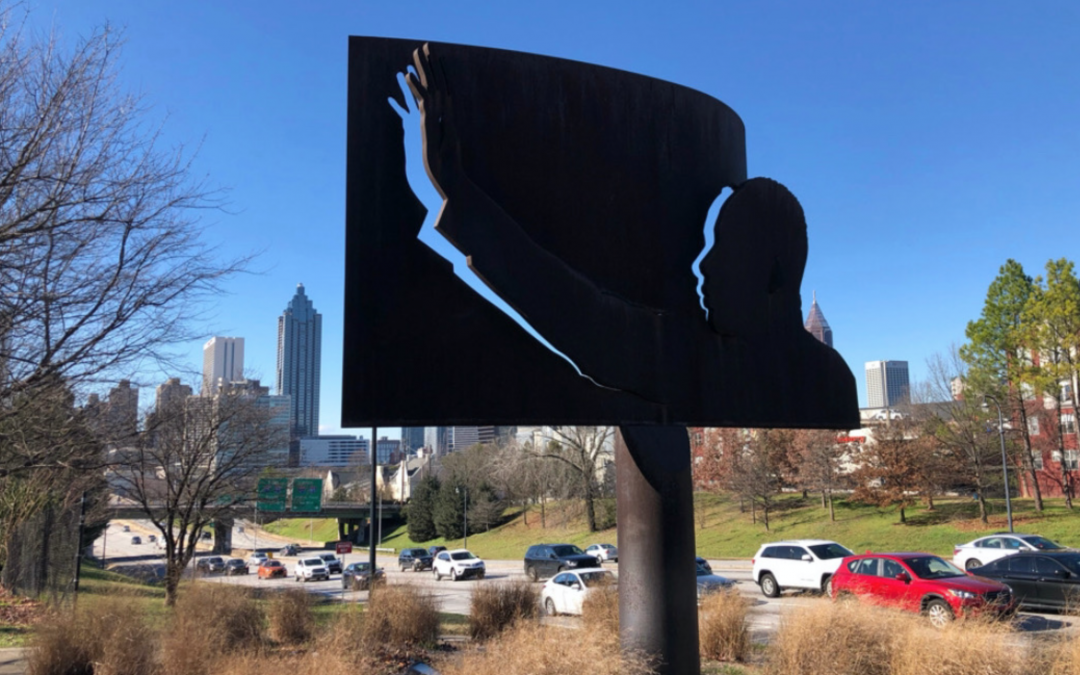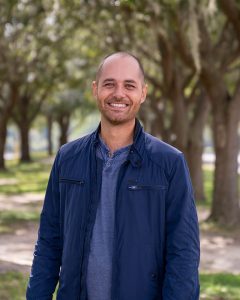I have to preface this post with an admission. I had the privilege of being the lead pastor at Center City Church for ten years and during that time, we recognized Dr. Martin Luther King, Jr. weekend four times. That’s six years that I never intentionally honored Dr. King or the many folks that came before and after him that have fought for justice in our country.
Here’s some back story…
I cut my teeth in ministry at a predominantly white megachurch in Orlando, FL. If we recognized MLK Jr. each January, I have to admit that I don’t remember it being a momentous occasion. Prior to that, I grew up in a predominantly white church just north of Orlando in Longwood, FL. Going back even further, I was born and raised until late elementary school in a predominantly white church just west of Detroit, MI.
The first six years of our ministry in Charlotte including me leading Center City Church in the way that I was raised. I didn’t understand the need to pause and properly honor Dr. King and so many others that have been fighting for base-level matters of economic and social equity. Furthermore, I didn’t notice because I didn’t have to notice. I was firmly in the middle class, never had a fleeting concern about unfair policing, and could always see a path between where I was and where I wanted to go in my life.
My understanding of the Civil Rights movement was shaped by reading a unit of a textbook in the fifth grade and the time when Mrs. Miller showed our (predominantly white) class a video of Dr. King’s I Have a Dream speech. I have some fuzzy memories of learning about the heroism of Harriett Tubman and Rosa Parks in high school, as well.
All that being said, I also have to admit that I simply didn’t care enough to dig any further than the surface. I know that might sound harsh, but I know it’s true. Teenage me could feel the ways black and brown students at Lake Brantley High School were treated differently and with less respect than the white students. I heard the jokes, but I put myself at ease knowing I wasn’t the one making the jokes (most of the time) about kids that weren’t like us.
In hindsight, my silence spoke louder than I realized. My circle of friends didn’t include people of color because my entire worldview from birth was white, middle class, and blind to the societal realities of my fellow classmates.
———————————————————————
It should come as no surprise, then, that honoring the life and legacy of Dr. King wasn’t on my radar when I began pastoring Center City Church.
Fast forward to the summer of 2015. Center City Church had grown to around 200 people and it was the most beautiful sense of community I had ever experienced. Folks gathered in homes across the Uptown Charlotte area on a regular basis. People cared for each other physically, spiritually, and financially.
However, I wasn’t ready for the day that God broke my heart.
I stepped up to a simple metal podium in the auditorium of Elizabeth Traditional Elementary School and it hit me like an unexpected left hook to my jaw.
“We all look alike,” I said to myself. Worse yet, I didn’t know why.
I composed myself and proceeded to speak one of the most distracted sermons of my life. I went home that afternoon, still reeling from the fact that my eyes were finally open, and I wrote this phrase in my journal:
“Like people invite like people.”
I had no clue that my definition of a beautiful community looked nothing like the diversity that was present in our beautiful city.
Something had to change, and it had to change in me first.
———————————————————————
I think your church probably fell into three very general categories this weekend.
- The church that did not recognize Dr. Martin Luther King, Jr. or anything related to this holiday weekend.
- The church that has not mentioned anything about racial and economic inequality since last year, but brought it up this weekend again.
- The church that celebrated the life of Dr. King as an ongoing expression of a pursuit of unity in the body of Christ throughout the year.
Here are some thoughts on each of these broad categories.
#1 – If your church did not say anything at all about Dr. King, your church said something very clearly to the black and brown people that attend the church.
This is not intended to disparage you. Remember, I led my church in this way for the first six years of existence, and spent ten years in full-time ministry before that never mentioning a word when we didn’t intentionally take time to recognize such a significant weekend in our nation.
#2 – If your church only talks about racial and economic inequality on Dr. Martin Luther King, Jr. weekend, you are communicating something to your church.
Think of this like the church that never lets a woman in the pulpit, but then has a woman (usually the pastor’s wife or a staff member) speak on Mother’s Day. If you don’t do something throughout the year and then only do it when the calendar says you should, it comes across as disingenuous.
If your church is not mentioning matters of inequality and oppression in our country throughout the year, it can come across as a to-do list item on the preaching calendar of a church that is trying to check all the boxes. One Sunday will never satisfy the importance of teaching the gospel message that spoke boldly against systems of power, influence, and greed that was oppressed people throughout the bible.
Simply put, if you aren’t preaching a gospel message that shows Jesus as an agitator to the centers of religious and political power of the world during his time on earth, you aren’t representing the life and message of Jesus accurately to your church. Jesus was full of love, but make no mistake, he came to destroy a demonic form of government and establish a new kingdom that was not of this world.
#3 – If your church talks openly and naturally about matters of racial and economic inequality, please write your pastor a note and thank her or him for their courage.
I had the privilege of attending CFA Church this weekend and experienced an incredibly moving and beautiful expression of oneness in the body of Christ. Pastor Doug Witherup acknowledged the pain that is present in our society, courageously released his creative team to honor Dr. King and so many others that fought diligently for equality, and pointed the congregation to the beauty of “The Heavenly City” that is described in Revelation 21.
I want to thank you, Pastor Doug, for your courage. I know how hard it can be to take shots when you speak out on things that really matter, and you did so with grace and strength.
I want to thank you, Corey, for sharing your heart for biblical justice with such clarity and boldness. Also, thank you to you and Laura for writing your devotional, Proximity: A Practical Devo To Bridge Chasms of Culture Between Communities of Faith.
I also want to thank Pastor Jon Hernandez, the lead pastor at Center City Church, for your courage in preaching a message that so clearly pointed to Jesus in the midst of a divided culture. It’s an honor for Dara and I to have played our part in laying the foundation for you and Jess to build upon as Center City continues to grow and mature. I watched your message online and felt the warmth of your love.
———————————————————————
As I stared at the predominantly white congregation that was before me in 2015, I knew something had to change. I reached out to Pastor Kelvin Smith at Steele Creek Church because he was a white pastor with one of the most diverse congregations I had ever seen.
I asked, “How did you realize your dream to see a diverse community worship together?”
He replied, “How many black friends do you have?”
My mind raced as he stared at me for what seemed like ten minutes but was most likely ten seconds. I kept thinking of all the black people I knew but I could tell that was not what he was asking.
“How many people of color are in your life that would genuinely tell you what it’s like to be a black or brown person in our culture?” He continued, “I’m not asking you how many people of color you know, I’m asking how many are genuinely your friends and will open up with you.”
My journey began that day and I started to pray that God would fill my life with friends across traditionally dividing lines that would feel comfortable and safe sharing their story with me. It took a lot of time and intentionality. I’ll never forget hearing a friend say, “I’m too exhausted to start from scratch with you today, David. Go read a book on what it’s like to be a minority in our country and come back to me. Then I’ll talk to you because I will know that you care enough to do some of the work on your own.”
That was a real, raw, and honest moment of friendship. I took her advice and, quite honestly, I haven’t stopped. I have found that the more I understand why our culture is so skewed to middle and upper class white folks, the more I can genuinely know and love my neighbors that are different than me.
———————————————————————
If you’re a pastor that is reading this and feels uncomfortable or offended, spend some time with those feelings. Invite the Holy Spirit to lead you and guide you into moments of clarity. I don’t write this to throw stones. I have needed exceeding amounts of grace from my friends along the way in my personal and corporate journey as I led the Center City Church community for ten years.
I will end with this final thing that I’ve learned: curiosity goes a long way. Ask yourself questions about why things are the way they are in our culture and don’t look away when it gets uncomfortable. Listen to friends in your life that are courageously speaking up and letting you into their lived experiences. Ask God for a humble heart that is full of courage, and seek to truly love each person that comes to your church.
If you have the courage to learn about the real-life issues that people in your church are experiencing, it will naturally flow out from a genuine heart that is being impacted by the call to neighborliness that is found in the greatest commandment. Your intentional desire to know your community will draw others in that are not like you and have different lived experiences.
I can’t promise that it feels good or will lead to immediate growth in your church, but I can say that your life and message will start to look and sound more like Jesus, and that is the best strategy for ministry that I can imagine.
Remember, what your church said (or didn’t say) this weekend said something about your church.
What are you saying to your community?
———————————————————————
Matthew 22:36-39 – “Teacher, which is the greatest commandment in the Law?” Jesus replied: “‘Love the Lord your God with all your heart and with all your soul and with all your mind.’ This is the first and greatest commandment. And the second is like it: ‘Love your neighbor as yourself.’”


